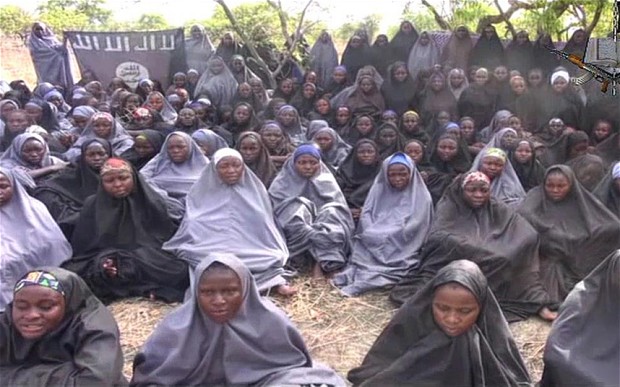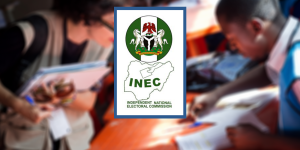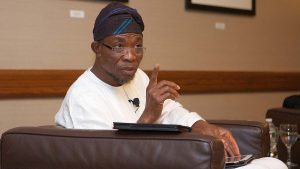Tackling International Dimension of Kidnapping in Nigeria

West African countries should act now to eliminate international kidnapping across West Africa. Kidnappers in Nigeria today are not herdsmen and we should stop calling them herdsmen. KIDNAPPING has become an international occupation and big business for several people in Nigeria, Mali, Niger, Chad, Burkina Faso and others in West Africa. There are international kidnappers in Nigeria today. They move from one country to other in West Africa. Most of the international kidnappers in Nigeria can not speak English language. Two victims of kidnapping told me that many of the foreign kidnappers are mostly from Mali and Niger Republic. The kidnappers in Nigerian roads and forest speak foreign languages.
International Kidnapping now constitutes a wing or part of the coalition of jihadist groups known as Jama’at Nusrat ul-Islam wal-Muslimeen, or JNIM. It brings together al-Qaeda’s Sahara franchise, AQIM, with a number of other militant groups. Kidnappers and bandits that speak Fulani are part of jihadists groups that should treated as terrorists and not as herdsmen. The coalition was formed in March 2017 and operates in Mali, Burkina Faso, and Niger.
A franchise of so-called Islamic State, known as Islamic State in the Greater Sahara or ISGS, has been active since 2015 and is also gaining ground despite recent pressure from French forces. An assortment of home-grown militant groups – including Ansaroul Islam in northern Burkina Faso and Katiba Macina in central Mali – completes the picture. Their success is largely predicated on understanding the local grievances of different communities, in particular the Fulani.
Foreign kidnappers have discovered that it is more lucrative to kidnap in Nigeria. Over the decades, kidnapping in Nigeria has evolved into a lingering, pervasive security threat and fast-paced and multifaceted criminal enterprise. It is now perpetrated by diverse armed groups and criminal gangs operating across the country, on land and at sea, pursuing different agendas and driven by different motivations: political, ideological, financial, social and cultural. Over time, the practice became increasingly monetised. Desperate to secure the release of their staff, oil companies were quick to pay hefty ransoms. Given how lucrative their stock-in-trade had become, militants went from kidnapping oil workers to kidnapping local politicians, their relatives or other high-net-worth individuals. The ransoms were likely to have been used to purchase arms and ammunition.
In terms of geographic prevalence, kidnapping for ransom and extortion by criminal groups, including on roads, has been the most widespread manifestation of the crime. There is kidnapping for ritual purposes. There is an entrenched myth in parts of Nigeria that human body parts used in ritual magic bring wealth, power, protection, and success. Some Nigerian analysts and researchers believe that the majority of victims of kidnapping or missing persons across the country were abducted for ritual purposes rather than ransom or any political objectives. Such claims, notably the nexus between kidnapping and ritual sacrifices, need to be further explored.
Kidnapping incidents are generally underreported in Nigeria. Many people do not trust the police or fear that contacting security services will put their loved ones at greater risk. This results in a lack of reliable official crime data in the country.
A surge in violence across West Africa’s Sahel has displaced hundreds of thousands of people and left thousands dead since January, as Islamist militants with links to al-Qaeda and so-called Islamic State extend their reach across the region at a time when they are losing ground in their Middle Eastern strongholds.
President Muhammadu Buhari has lamented the prevailing insecurity in the country because according to him, it has now taken an occupational dimension.
“Some of our youths, our children have turned to a new industry which is causing fear in the heart of all of us, namely kidnapping, abduction and all kinds of crimes including rustling of cattle. How long can we endure as a country in this circumstances? How can we survive when kidnapping is a new occupation and a business?
I get frustrated when Nigerians refer to kidnappers as “unknown gunmen” and bandits waging violence in Nigeria. Why should kidnappers, gunmen and bandits be unknown for years? They kill innocent people and destroy their means of livelihood and yet they are unknown: we have security agents mandated to ensure the safety of all citizens and within all military and paramilitary agencies, we have intelligent units and yet these killers remain unknown. Why are West Africa cattle herders turning to jihad? Like most gunmen in so-called Islamic State in the Greater Sahara, which operates along the sand-swept borderlands where Mali, Niger, Nigeria, Burkina Faso and others. The transition of pastoralists from vigilantes protecting their cows to jihadists capable of carrying out complex attacks is a story Africans and Western powers would do well to heed, as their pursuit of violent extremism in West Africa becomes ever more enmeshed in long-standing ethnic and clan conflicts.
A French intervention in January 2013 dislodged jihadists, but they regrouped and insurgencies have since spread into central Mali, northern, eastern and southwestern Burkina Faso and the Tahoua and Tillaberi regions of southwestern Niger. Kidnapping and militancy’s rapid progress has been aided by the region’s vast desert areas and porous borders, a flow of firearms from nearby Libya, and weak – and often predatory – states that struggle to provide even basic social services: Burkina Faso, Mali, and Niger all rank among the 10 least developed countries in the world, according to the UN’s Human Development Index.
There are 1,123 cells run by almost foreign armed militia. The cells are populated with foreign armed men. Some of them are in military uniforms and in some instances we find young girls cooking for the men.” Jihadist groups have recruited heavily from Fulani and other pastoralists, “an ethnic groups that suffers from social exclusion as well as government and development programmes that favour agriculturalists.” This has raised tensions with members of other ethnic groups who say they are targeted by the jihadists.
In January 2019, attacks against Fulani villagers in northern Burkina Faso left more than 200 dead, according to local civil society groups. In March, some 160 Fulani men, women, and children were killed in a single attack by an ethnic Dogon militia in central Mali. The violence is now being widely described as “ethnic cleansing”.
The violence has its roots in the activities of a number of local but globally oriented jihadist groups that have spent the past few years laying the groundwork for armed insurgencies and are now wreaking havoc across the Sahel – a semi-arid belt of land on the southern edge of the Sahara.
December 6, 2018 report by the BBC said Nigeria ranked third in the 2018 Global Terrorism Index, trailing Iraq and Afghanistan as a result of insecurity terrorism among other crimes. While the country is in the first position of the index in Africa, followed by Egypt, DR Congo and Libya. It identified Maiduguri as the primary target for Boko Haram. The report blamed increase of ’terrorists deaths’ on some religious extremists. It, however, noted that as at the period under review, the number of people killed by Boko Haram has gone down drastically.
Our borders are too porous and not policed enough to wade off criminals who come into the country to wreak havoc. Policy statements should be promulgated and put in place to secure our borders and stop the illegal inflow and outflow of criminals in the country. According to the Inspector-General of Police (IGP), Mohammed Adamu, 1,071 people were killed in crime-related cases across the country in the first quarter of 2019. Six hundred and eighty-five were kidnapped within the same period. He said the killings were most prevalent in the north where 767 people were killed, with the northwest region topping the list with 436. While the north central recorded 250 deaths, the southsouth had 130.
West Africa region is facing a severe protection crisis. The armed violence that has affected large parts of the Lake Chad Basin is stretching to its tenth year. Hundreds of thousands of civilians have lived in displacement sites and refugee camps for years, grappling with extreme hardship and deprivation. Many civilians have suffered abuse and rights violations and are deeply traumatised by the violence.
There is a link with the unprecedented increase in the terror threat and kidnapping with the ongoing violence in Nigeria. These worries are substantiated and confirmed in February after several killings in Nigeria. Terrorism is one of the biggest crimes against humanity. Every such crime deserves to be named appropriately, and nations experiencing such owe it to their citizens to act swiftly and decisively against terrorists. What we have experienced so far with the foreign kidnappers is nothing short of terrorism and it is high time government handled it with the seriousness required for such a grave situation not only to protect the lives and properties of her innocent citizens, but also to preserve the tribal identity of the many real Fulani Herdsmen who are simply looking to make honest and legitimate livelihoods
![]()



